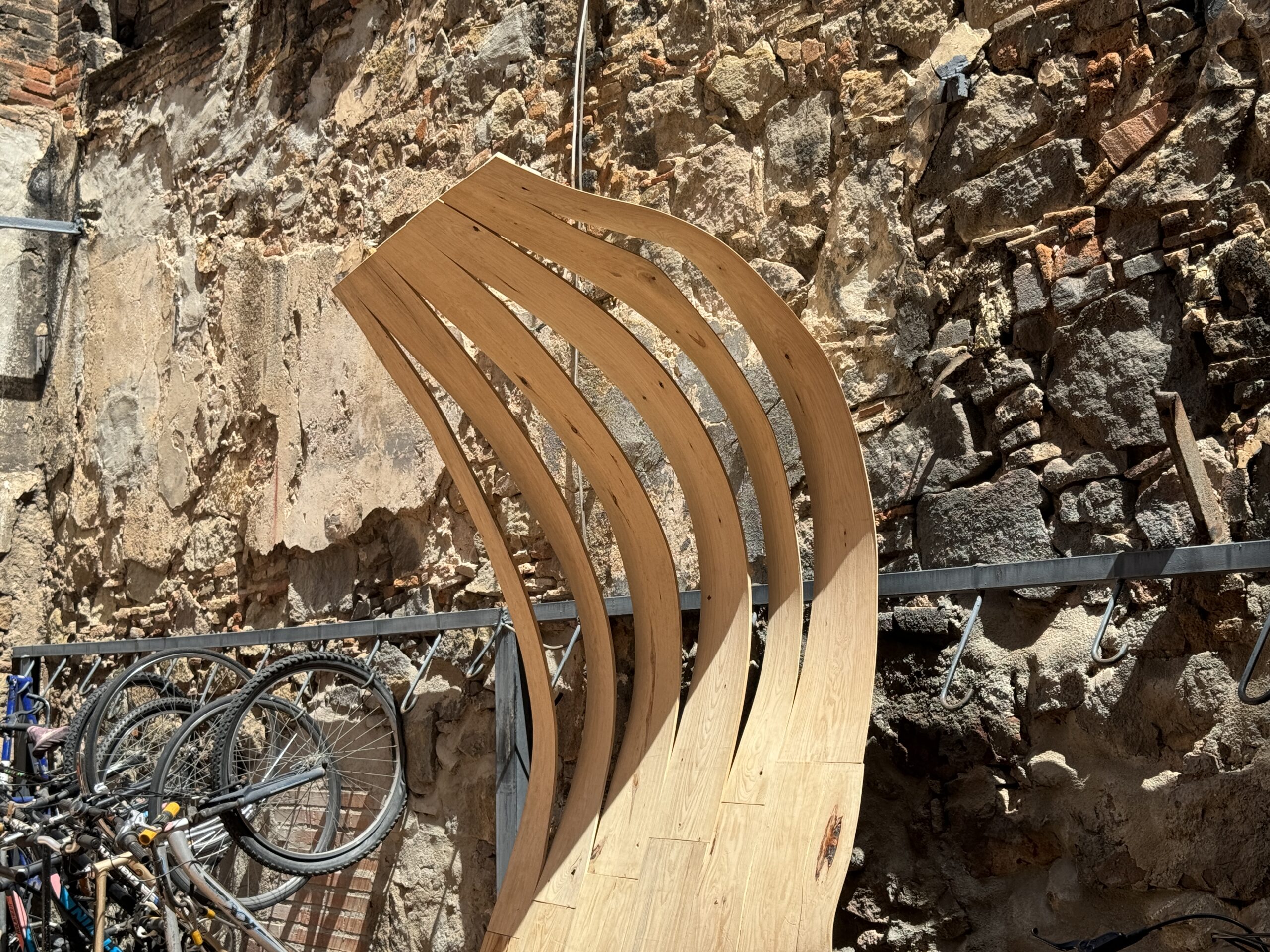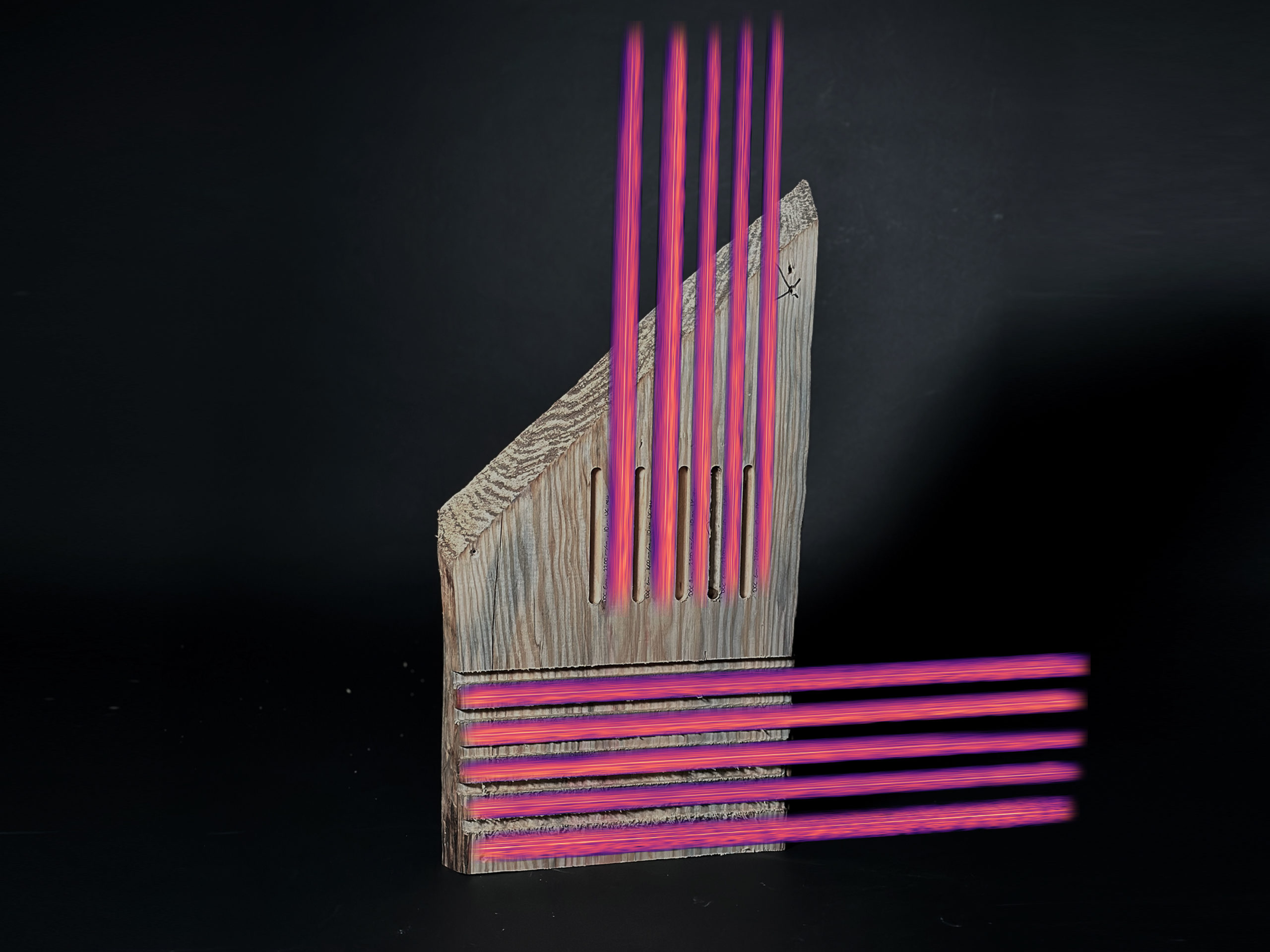The Master in Robotics and Advanced Construction (MRAC) seeks to train a new generation of interdisciplinary professionals who are capable of facing our growing need for a more sustainable and optimised construction ecosystem. The Master is focused on the emerging design and market opportunities arising from novel robotic and advanced manufacturing systems.
Through a mixture of seminars, workshops, and studio projects, the master programme challenges the traditional processes in the Construction Sector. It investigates how advances in robotics and digital fabrication tools change the way we build and develop processes and design tools for such new production methods.
BENDATA
MATERIAL DATA DRIVEN STRATEGIES “BENDATA” explores how a material-informed strategy can control the bending of irregular leftover wood for bespoke architectural applications. Tackling wood leftovers, the research bypasses standardization by co-designing with nature, using post-tension bending, to achieve mass-customization. By listening to wood via a microphone during milling, material information is revealed to inform the … Read more
PRINT-SCAN-ADAPT
Context Is additive manufacturing going to change the way we fabricate? Certainly it is, additive manufacturing has an immense growth potential with a 22% annual growth as it has offers mass customization and reduced waste. One of the challenges in additive manufacturing is to improve the precision and reliability of the manufacturing process. This can … Read more
EMBEDDING ASSEMBLIES
Mechanical Inserts for 3D printed Clay Due to land scarcity, the construction industry pushes architecture to shift its focus towards the entire life cycle of the final construction, considering its various phases, from its sourced material and manufacture, to its utilization and eventual end of life. Minimizing material usage and construction time has provoked the … Read more
Harmonic Grain Craft
How can we ensure high quality products using non-standardized wood in architecture? Abstract Inspired by the success of the “Realform” research project, which ingeniously reuses non-standardized wood scraps and uses the grain data to create a seamless, material-based design, this project aims to advance the topic of sustainability in architecture. Building on the foundation of … Read more






